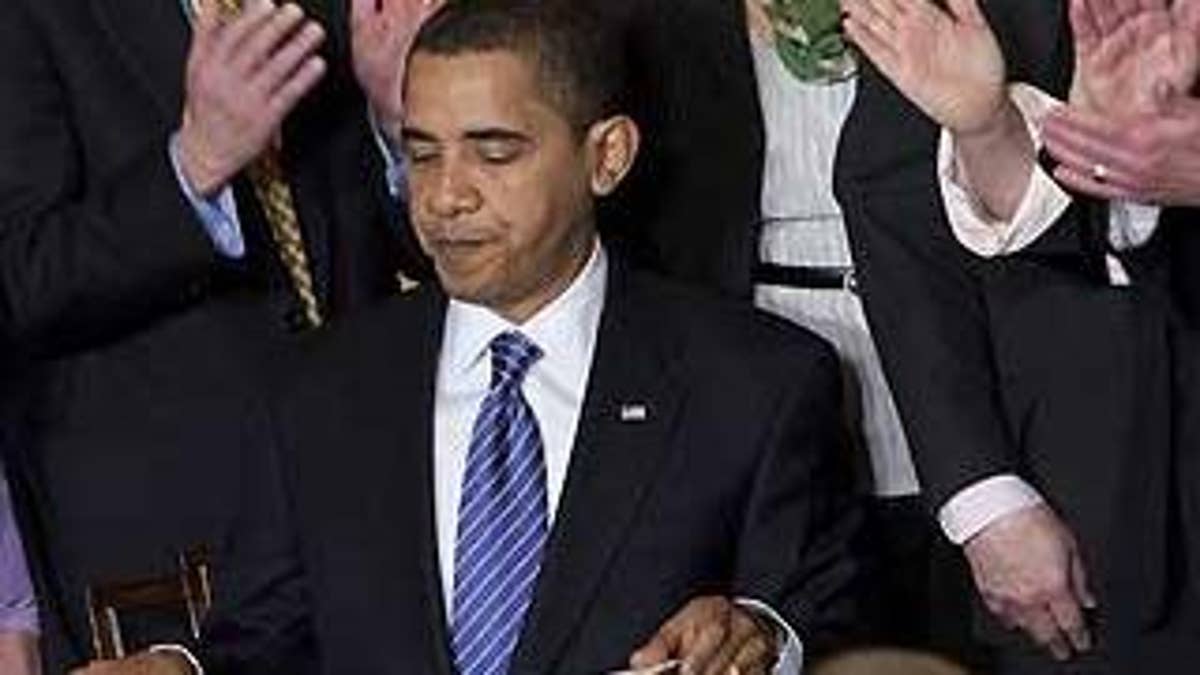
President Obama may have abolished contentious Bush-era restraints on federal funding of stem cell research on Monday, but a legislative obstacle still remains for scientists seeking more money.
A spending bill that Obama signed on Wednesday explicitly bans federal funding of any "research in which a human embryo or embryos are destroyed, discarded, or knowingly subjected to risk of injury or death," language that pertains to creation of new stem cell lines.
This provision, known as the Dickey-Wicker amendment, was included in the 465-page omnibus spending bill that will fund government agencies through September. The amendment is a measure Congress has included in spending bills in every fiscal year since 1996.
Bush's executive policy additionally had limited researchers receiving federal aid to just 21 stem cell lines created before August 2001. Obama's reversal allows them to use hundreds of other stem cell lines already in existence.
But the Dickey-Wicker provision still prevents federally backed researches from creating their own stem cell lines, blocking their access to hundreds of new embryonic stem cell lines, usually from embryos left over from fertility treatments that would otherwise be discarded. Scientists tout such promising, long-term research in hopes of creating better treatments, possibly even cures, for conditions ranging from diabetes to paralysis.
Reps. Diana DeGette, D-Colo., and Mike Castle, R-Del., are seeking a quick vote on legislation to repeal the amendment, after failing twice in the past to overturn Bush's restrictions. Degette said she doesn't want stem cell research to become a "pingpong ball going back and forth between administrations."
A battle over the Dickey-Wicker provision erupted after Obama lifted the ban on federal funding for embryo-destroying stem cell research.
The New York Times called on Congress to repeal Dickey-Wicker in an editorial on Tuesday.
"Other important embryonic research is still being hobbled by the so-called Dickey-Wicker amendment," the newspaper wrote. "Congress should follow Mr. Obama's lead and lift this prohibition so such important work can benefit from an infusion of federal dollars."
Douglas Johnson, spokesman for the National Right to Life Committee, said in a press release Monday that Obama's reversal of the Bush policy "set the stage" for an effort to repeal Dickey-Wicker.
"This sets the stage for an attack on the Dickey-Wicker law," Johnson said. "Any member of Congress who votes for legislation to repeal this law is voting to allow federal funding of human embryo farms, created through the use of human cloning."
Obama said Monday the stem cell policy is designed so that it "never opens the door to the use of cloning for human reproduction." Such cloning, he said, "is dangerous, profoundly wrong, and has no place in our society or any society."
Now the ball is in Congress' court, where only lawmakers can overturn Dickey-Wicker, which will remain in effect at least until the end of the fiscal year on Sept. 30.
The Associated Press contributed to this report.




